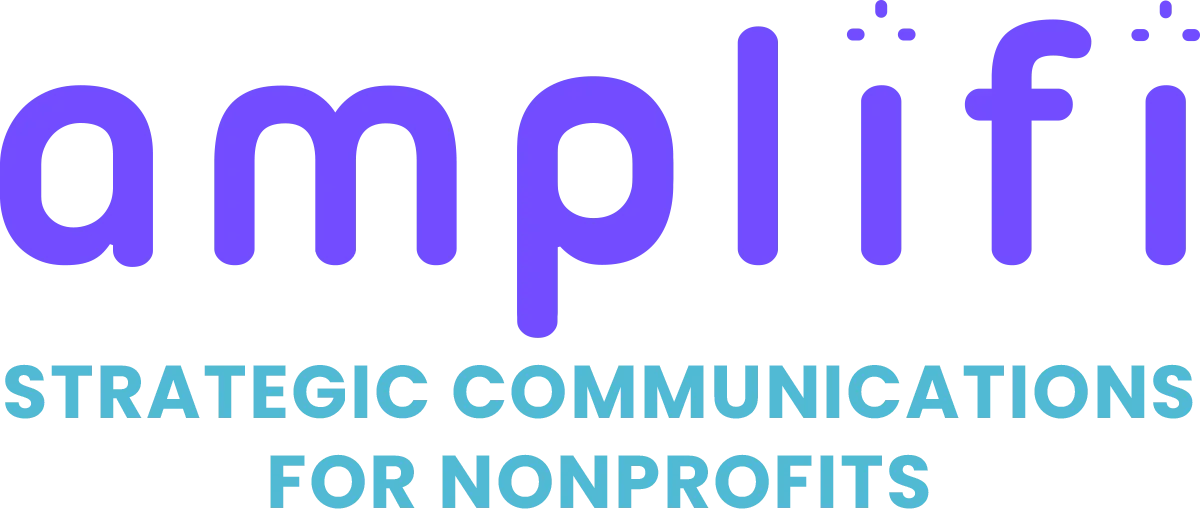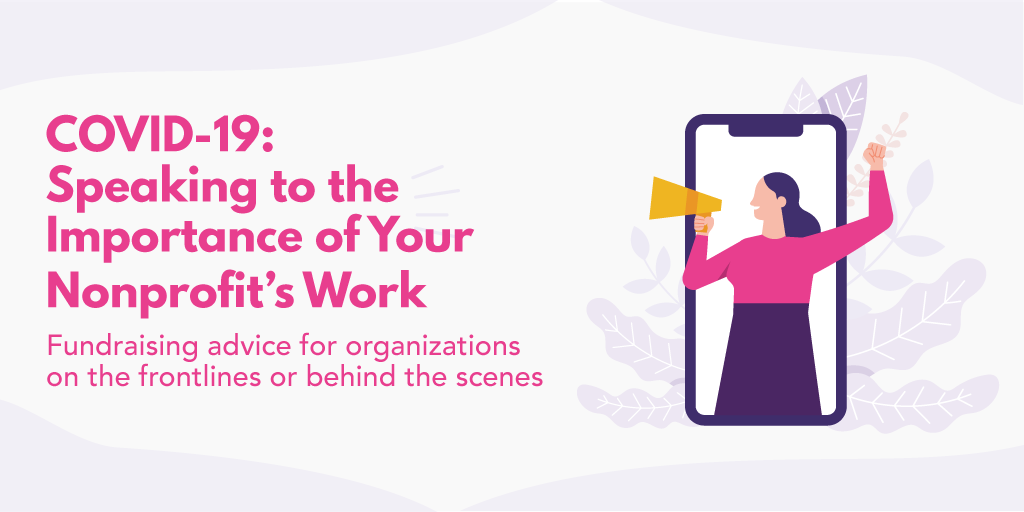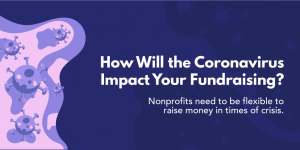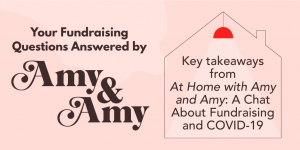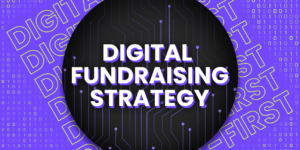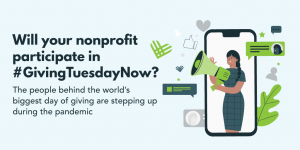What is your organization’s role in the COVID-19 pandemic? Do you work for a healthcare or social services organization fighting on the frontlines? Or maybe your work doesn’t directly relate to the outbreak, but you still have an important message to share with your donors?
Here are some key points to help you speak to the importance of your nonprofit’s work based on where your organization stands:
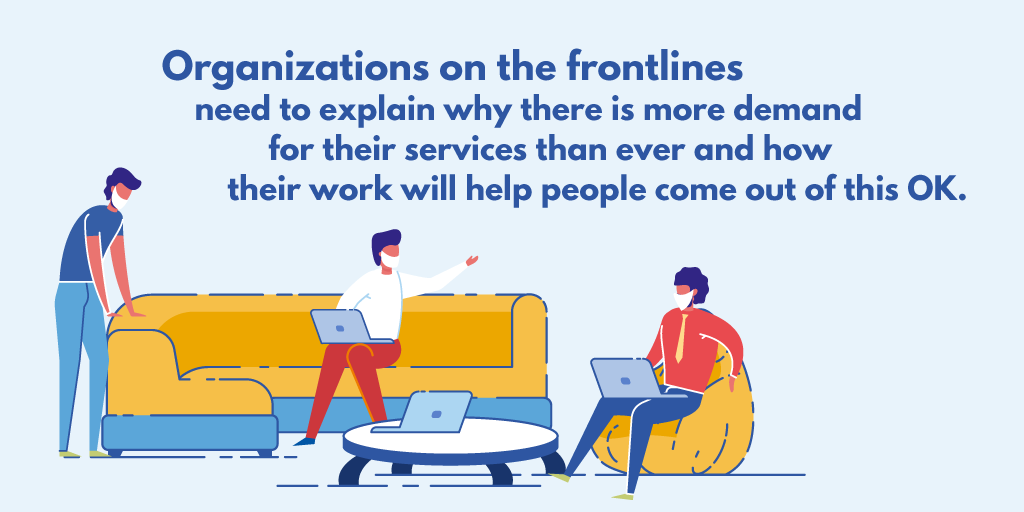
Nonprofits on the Frontlines
Nonprofits on the frontlines of the pandemic, such as healthcare organizations, need to tell their audience why their support is more important than ever.
It seems that most people understand the severity of the virus. So, you don’t need to educate them on how the virus spreads, or the importance of frequent hand washing.
Instead, focus on how your work is helping fight the pandemic on the frontlines and what donors can do to help the world heal.
For example, talk about how the money you raise is helping researchers develop a vaccine. Or how you’re raising money to help hospitals acquire the critical equipment they need to save lives.
Or, maybe you work for an organization that helps people in underserved communities? You know the people you serve need help more than ever, especially if your area has been hit hard by the virus. You need to communicate this to your donors.
Let them know how many more people are seeking your services than usual. Talk about how much food you will need to distribute so no one goes hungry. Tell them how many of the jobs lost because of the outbreak belonged to these blue-collar and service industry workers in your community.
Explain that there is more demand for your services than ever and that your work will help people come out of this OK. Then ask your supporters to help you rise to the challenge.
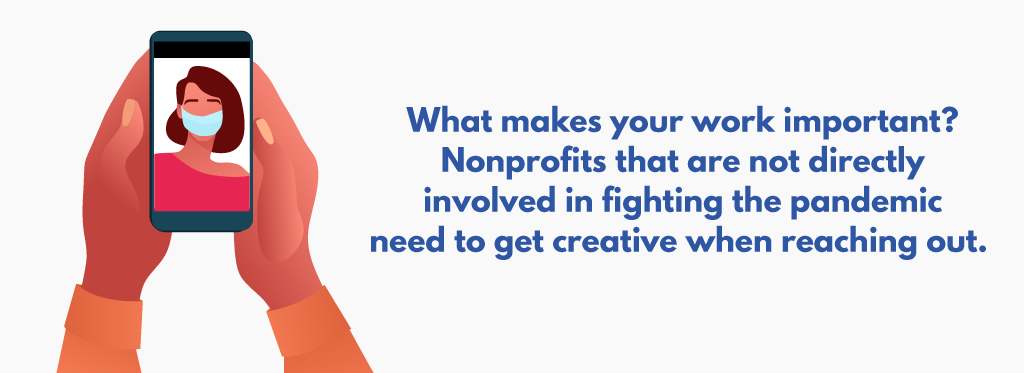
Behind the Scenes
Nonprofits with a less defined connection to the pandemic will need to be more creative when crafting their message. If you’re sending an emergency appeal, you need to make the impact of your work feel important for donors during this unusual time.
So, what could this look like?
Nonprofits that preserve nature and open space have a unique opportunity. Nature walks are one of the only recreational activities available to residents of the hardest hit areas. Let donors know how their support is more important than ever to make sure people have an option to get out and exercise.
These organizations can position themselves as protecting the mental health of their communities by providing somewhere for people to go and get out while maintaining social distancing.
Animal shelters are another type of organization providing a critical, but not directly related, service during this time. Many pets have been abandoned due to unfounded fears about the disease transmitting through family pets. However, there is no evidence to support this belief!
So, resources are stretched thin at many animal shelters right now. Talk to your donors about the influx of animals and ask them to do what they can to help.
And like environmental organizations, share what your organization is doing to care for the mental health of everyone during the outbreak. Many animal rescues are encouraging people to foster animals while we hunker down during the pandemic.
We are all spending a lot of time at home. And a furry friend can help make the time at home feel less lonely. Ask donors to support your organization so you can help more people foster an animal and keep everyone a little saner.
Why Does it Matter to Donors?
No matter where your organization is coming from or how your doing your part in battling this pandemic, you need to communicate why your work is so important right now.
Your donors have a lot on their minds. More and more people are being put out of work by the pandemic. So. your supporters may not jump to give at a time when they are worried about getting their next paycheck.
But this virus has touched everyone in one way or another. And many people want to do something to help! So, whether you’re on the frontlines or behind the scenes, you need to position your nonprofit’s appeal around how you’re doing your part to help the world heal.
